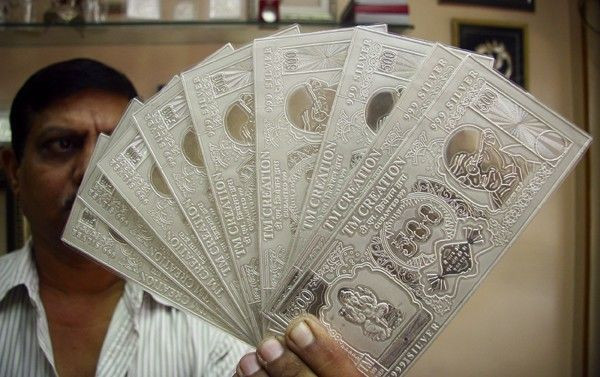RBI Rate Decision Pressures Delhi For Fiscal Action

The surprise decision Monday by the Reserve Bank of India to hold its interest rate steady because of inflation concerns pressures the ruling Congress Party to find a fiscal solution to the country's flagging economy.
The RBI left its benchmark rate untouched at 8 percent and held its cash reserve ratio -- the portion of deposits that banks must hold with the central bank -- constant at 4.75 percent, also imposing stringent limits on credit refinancing activities involving exports.
The RBI said repurchase rate cuts at this juncture could exacerbate inflation by injecting greater liquidity into the economy. In May, inflation on the wholesale price index, India's main gauge, rose 7.55 percent from the year before, according to data released last week.
Our assessment of the current growth-inflation dynamic is that there are several factors responsible for the slowdown in activity, particularly in investment, with the role of interest rates being relatively small, the central bank said in a statement.
Delhi has failed to contain its fiscal deficit by slashing costly subsidies on diesel or enacting reforms.
The RBI made it clear that it would refrain from further rate cuts unless the government ramped up efforts to push for reforms aimed at expanding business investments and curtailing wasteful expenditures.
It is to the central bank's credit that it managed to stand up to the pressure from the government and businesses and remains justifiably concerned about inflation, Rajeev Malik, an economist at CLSA in Singapore, said in a client note.
Several business organizations, including the Federation of Indian Chambers of Commerce and Industry, or FICCI, Confederation of Indian Industries, or CII, Assocham and PHD Chamber of Commerce and Industry, criticized the RBI for shifting the burden of India's burgeoning crisis to a politically hamstrung coalition government.
The ruling coalition and the central bank are both facing brickbats for rating agency Fitch's sovereign credit downgrade from stable to negative, following Standard & Poor's relegation in April. Both agencies have cited corruption, gaping budget deficits and inadequate reforms as the reasons for their rating outlook.
Going forward, the ratings could stabilize again if the government implements initiatives to reduce structural fiscal deficits and improve its investment climate, said Sandip Somany, president of PHD Chamber of Commerce and Industry. Fiscal measures could be an efficient use of fuel and fertilizer subsidies and an early implementation of the goods and services tax.
The RBI's policy decisions sent markets tumbling: India's benchmark 10-year bond yield closed at 8.43 percent after climbing 9 basis points prior to the announcement; the Bombay Stock Exchange's Sensex slid 244 points, and the Nifty index fell nearly 75 points. Furthermore, the Indian rupee plummeted against the dollar to INR 55.91 from INR 55.35-55.40 in the period prior.
Besides the knock-on effects of the euro zone sovereign debt and banking crisis, India has been facing weak export trade, as well as a production slowdown in its agricultural and manufacturing sectors. Economic growth in the first quarter of this year receded to 5.3 percent, its weakest annual pace in nine years. While the country's growth pace was considerably better than most of its peers among the BRICS, it precipitated corporate India's calls for action from the RBI.
© Copyright IBTimes 2024. All rights reserved.




















